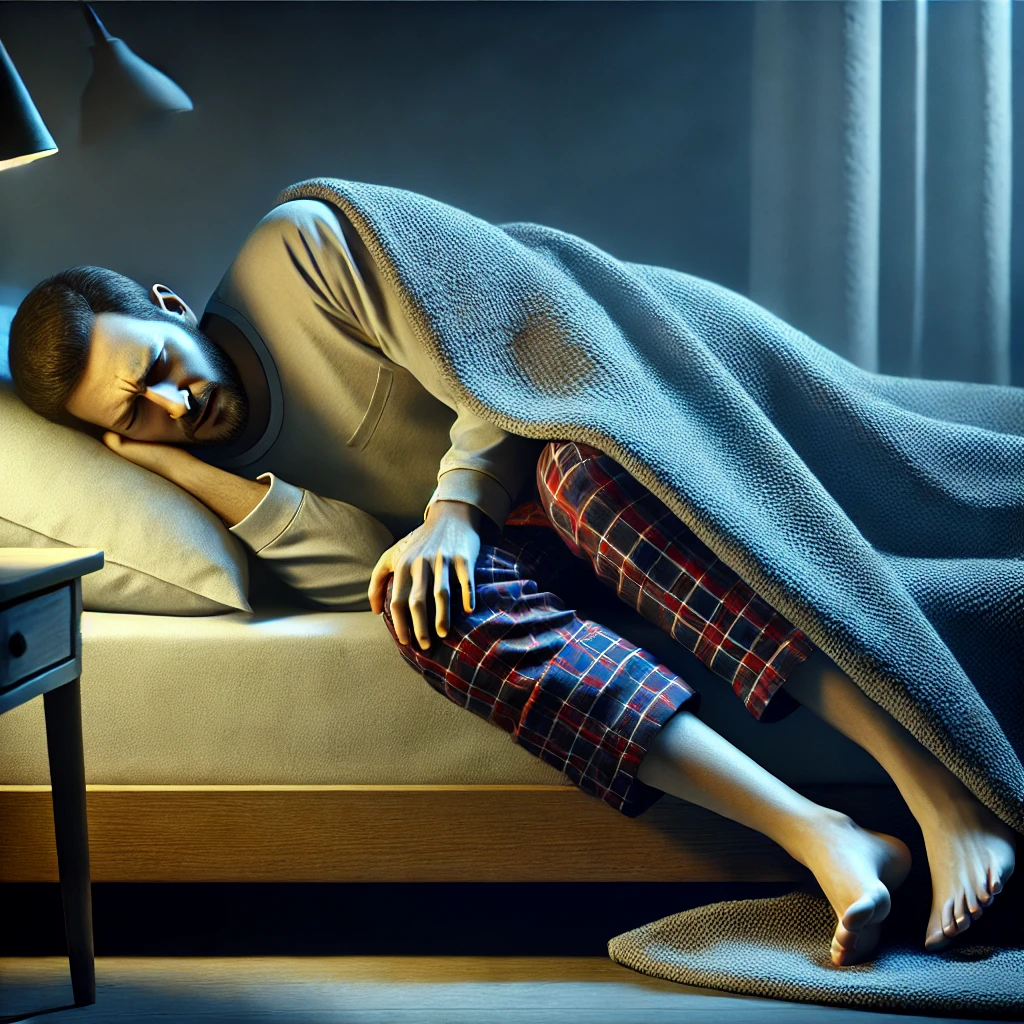What Is Restless Leg Syndrome and Is It Linked to Vein Disease? Understanding the Overlooked Connection

What Is Restless Leg Syndrome and Is It Linked to Vein Disease? Understanding the Overlooked Connection
If you find yourself constantly battling the urge to move your legs at night—an irresistible twitch, crawl, or ache that keeps you from falling asleep—you may be dealing with Restless Leg Syndrome (RLS).
But what if the root cause of your discomfort isn’t just neurological?
Newer research and clinical experience suggest that underlying vein disease, also known as chronic venous insufficiency (CVI), may be a hidden contributor to RLS symptoms—especially in people over 40.
In this blog, we’ll explore:
- What restless leg syndrome is
- How vein disease may mimic or worsen RLS
- Key symptoms to watch for
- And how targeted vein treatment may offer relief when nothing else has worked
What Is Restless Leg Syndrome (RLS)?
Restless Leg Syndrome, also known as Willis-Ekbom disease, is a neurological condition characterized by:
- An overwhelming urge to move the legs
- Crawling, tingling, burning, or aching sensations
- Symptoms that worsen at night or while resting
- Temporary relief with movement (walking, stretching, shaking the legs)
- Sleep disturbances due to the discomfort
RLS affects an estimated 7–10% of adults and can significantly impact sleep, mood, and quality of life. While often labeled as idiopathic (no known cause), many cases have underlying contributing factors that deserve deeper investigation.
What Causes Restless Leg Syndrome?
The exact cause of RLS is still debated, but multiple contributing factors have been identified:
✅ Neurological Dysfunction
RLS is thought to involve dopamine imbalance in the brain—affecting the communication between the brain and muscles.
✅ Iron Deficiency
Low iron stores in the brain may reduce dopamine activity. Even when blood levels are normal, brain iron may be insufficient.
✅ Chronic Diseases
Conditions like kidney disease, diabetes, and Parkinson’s are associated with RLS.
✅ Medications
Some antidepressants, antihistamines, and antipsychotics can trigger or worsen RLS symptoms.
✅ Pregnancy
RLS often arises during pregnancy—especially in the third trimester—due to hormonal and circulatory changes.
✅ Vein Disease (A Lesser-Known Cause)
One overlooked yet common contributor to restless legs, especially in middle-aged and older adults, is chronic venous insufficiency (CVI)—a form of vein disease.
What Is Vein Disease or Chronic Venous Insufficiency?
Chronic venous insufficiency (CVI) occurs when the veins in your legs don’t efficiently return blood to the heart. This leads to pooling of blood, increased pressure in the veins, and symptoms like:
- Leg heaviness or fatigue
- Aching or throbbing pain
- Swelling (especially in the ankles)
- Varicose veins or spider veins
- Skin discoloration or eczema near the ankles
- Restless legs—especially at night
Vein disease affects more than 25 million Americans, and many cases go undiagnosed because people assume their symptoms are just part of aging.
The Connection Between RLS and Vein Disease
Many people with restless leg symptoms may actually have undiagnosed venous insufficiency contributing to their discomfort.
How CVI triggers RLS-like symptoms:
- Increased venous pressure irritates nerves in the legs, causing tingling, aching, or crawling sensations.
- Pooling of blood and inflammation can disrupt circulation and worsen symptoms at rest.
- Nighttime worsening aligns with how veins behave when lying flat—making vein-related symptoms more noticeable during sleep.
Several studies and clinical observations have shown that treating underlying vein problems can significantly reduce or eliminate RLS symptoms—especially when traditional neurologic treatments don’t work.
Symptoms of Vein-Related Restless Legs
If you have RLS and any of the following symptoms, it may be time to consider a vascular evaluation:
- Legs feel heavier, achier, or swollen at the end of the day
- Symptoms improve with leg elevation
- You see visible varicose veins or spider veins
- You’ve had a blood clot or family history of vein issues
- Compression socks offer noticeable relief
- You’ve tried RLS medications with little improvement
How Is Vein Disease Diagnosed?
At Sheen Vein and Cosmetics, we use non-invasive duplex ultrasound to assess blood flow in the leg veins and look for reflux (backward blood flow), which confirms chronic venous insufficiency.
This 15–30 minute test is painless and performed right in our office.
How Is Vein-Related RLS Treated?
If vein disease is contributing to your restless legs, treating the underlying venous issue can dramatically improve your symptoms.
Common treatments include:
✅ Endovenous Ablation
A minimally invasive procedure that uses laser or radiofrequency energy to close faulty veins and reroute blood flow.
✅ Sclerotherapy
A treatment that involves injecting a solution into small varicose or spider veins to close them.
✅ Compression Therapy
Graduated compression stockings support vein health and reduce symptoms like swelling and restlessness.
✅ Lifestyle Adjustments
Elevating your legs, walking regularly, and avoiding long periods of sitting or standing can support overall vein function.
Many patients notice immediate improvement in leg symptoms—including RLS—after their first vein treatment.
What About Conventional RLS Medications?
Traditional RLS treatments include dopamine agonists, gabapentin, or iron supplementation. While these may help neurological symptoms, they don’t address vein-related causes and may come with side effects like dizziness, nausea, or rebound symptoms.
This is why a functional, root-cause approach is essential—especially if medications haven’t worked for you.
Final Thoughts: Don’t Ignore Restless Legs—Check Your Veins
Restless Leg Syndrome isn’t just “in your head” or a quirk of aging. For many people, it’s a warning sign of poor circulation or underlying vein disease—especially if symptoms are worse at night or accompanied by leg heaviness or swelling.
If you've tried neurologic medications, sleep hygiene, or supplements and still suffer from restless legs, it's time to consider a vascular evaluation.
Sick of restless legs disrupting your sleep?
At Sheen Vein and Cosmetics, we specialize in identifying and treating vein-related causes of leg discomfort—offering long-term relief through modern, minimally invasive techniques.
📞 Book your consultation today and find out if your restless legs are really a vein issue in disguise.